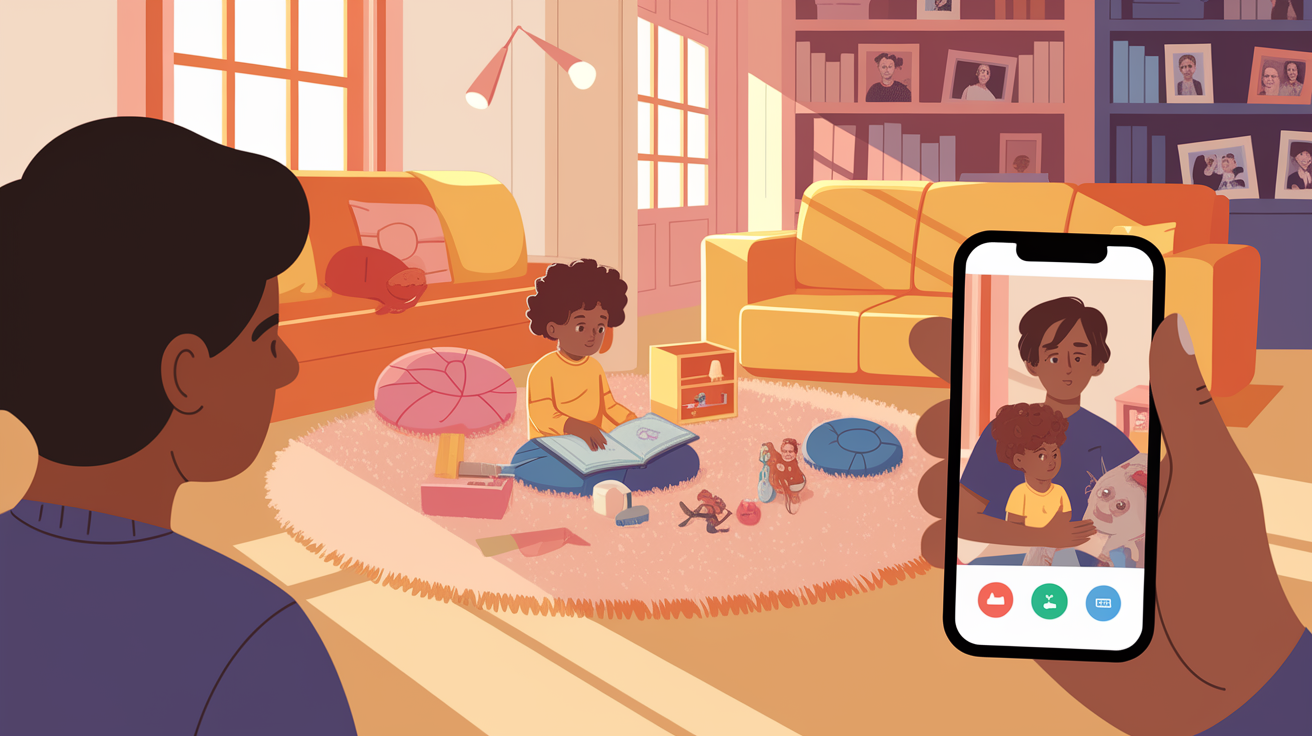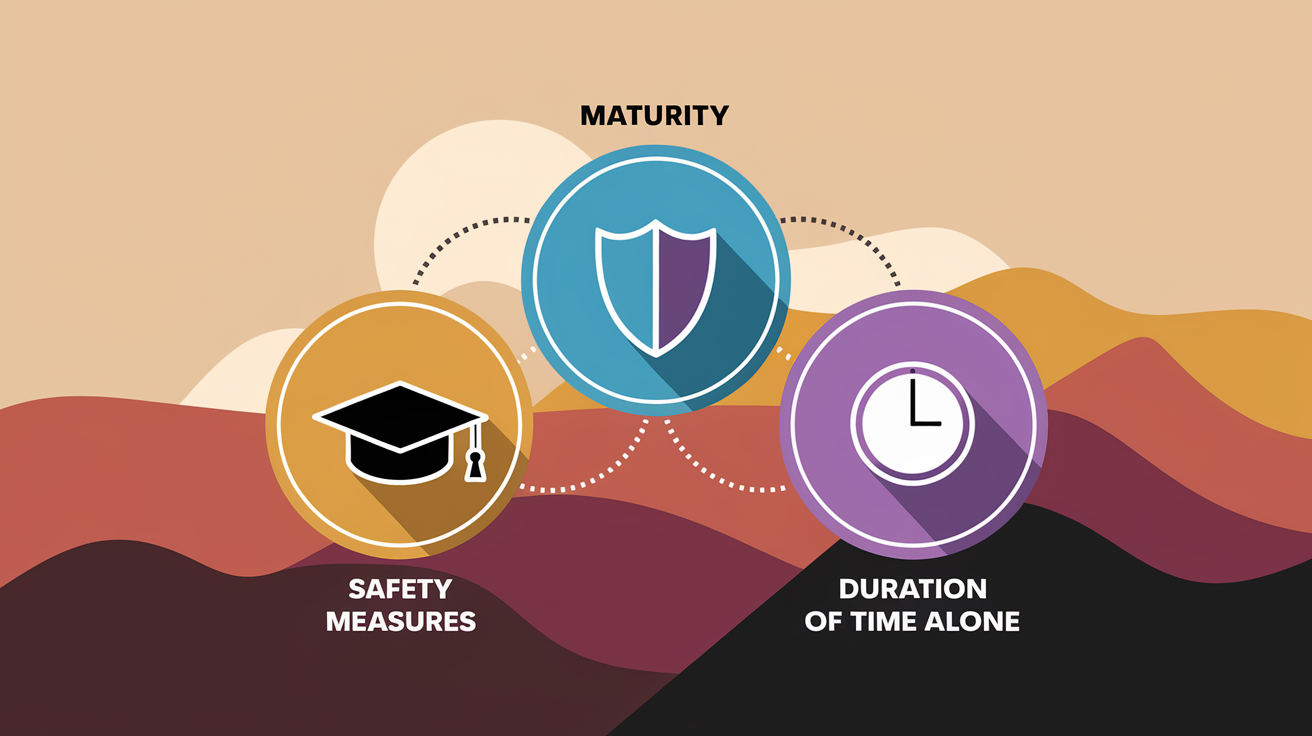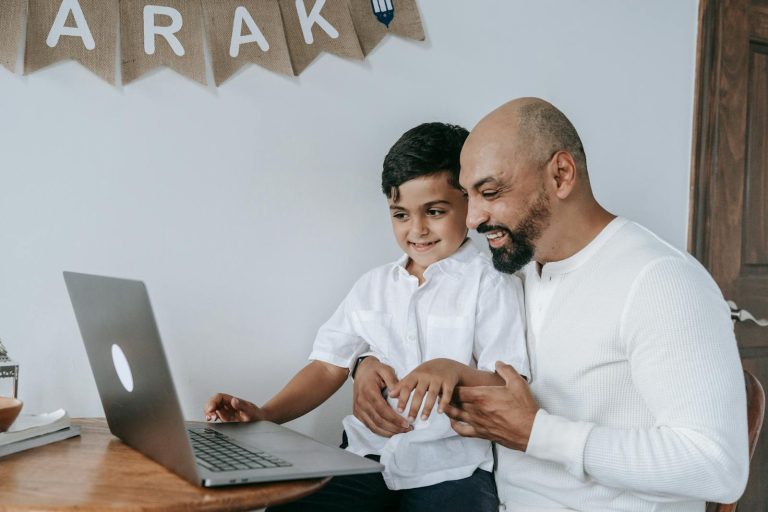What Age Can a Child Stay Home Alone: Safety Tips Inside

Leaving children home alone is a significant decision for any parent. It could be to run errands or for a few hours of personal time, and many parents face the question: At what age can a child stay home alone?
The answer isn’t straightforward, as legal age varies by state. Understanding these guidelines is crucial to ensure your child’s safety and avoid legal issues.
Every state has its own rules regarding when children can be left unattended, so parents must be aware of their local laws.
In this guide, we’ll review legal guidelines, factors to consider, and the consequences of leaving a child home alone without precautions.
Understanding the Legal Guidelines
There is no federal law that sets a specific age for when a child can stay home alone. Instead, each state has its regulations.
Some states, such as Illinois, require children to be at least 14 years old, while others, like Maryland, have no set age but recommend that children be at least 8 years old.
States like Colorado and Oregon set the minimum age at 12. California doesn’t have a clear law, but it suggests that children under 12 shouldn’t be left unsupervised for long periods.
Parents must check their state’s laws, as leaving a child home alone before the legal age can lead to fines or involvement with child welfare services.
Factors Influencing the Decision to Leave a Child Home Alone

When deciding if a child is ready to stay home alone, several factors should be considered beyond the legal age.
1. Maturity Level
A child’s maturity is crucial in determining readiness. It’s not just about age; it’s about the ability to handle emergencies, follow instructions, and make responsible decisions when alone.
If a child can stay calm and make sensible choices in unexpected situations, they may be more prepared.
2. Duration of Time Alone
Short periods, such as running errands, may be manageable for younger children, while more extended periods require more preparation and planning.
It’s essential to assess whether a child can be trusted for an extended period without feeling overwhelmed or unsafe.
3. Safety Measures
Before leaving a child alone, ensure the home is childproofed to prevent accidents. Provide emergency contact information and teach the child how to use it.
Additionally, ensure they are familiar with basic safety protocols, such as locking doors, avoiding strangers, and knowing how to respond to emergencies.
Maturity, the duration of time alone, and safety measures all play a significant role in determining whether a child is prepared for this responsibility.
Legal Consequences of Leaving a Child Home Alone
Leaving a child home alone before the legal age can result in serious legal consequences, which can vary depending on the state.
The following outlines some of the possible consequences:
-
Possible legal penalties: In many states, leaving a child home alone before they reach the legal age can result in fines or criminal charges. Penalty severity varies by law and circumstances.
-
Child Welfare Involvement: If a child is left home alone in unsafe conditions, Child Protective Services (CPS) may investigate to protect the child.
-
Risk of Liability: Parents are legally responsible if the child gets hurt or causes damage while home alone. This can lead to lawsuits, medical bills, and other costs.
-
What to Do if Unsure: If unsure about the legal age to leave your child home alone, consult local authorities or review your state’s guidelines. Laws vary by state, so ensure compliance. Consider legal advice if concerned.
Parents should fully understand the risks involved, as they could face legal and financial repercussions if they leave their child unsupervised in violation of the law.
Age-by-Age Breakdown: Common Guidelines Across States
Different states have their own rules regarding the age at which a child is allowed to stay home alone, so it’s advisable to check the specific regulations in your area.
Here’s a breakdown of standard guidelines by age group.
| Age Group | Guideline | Example States |
|---|---|---|
| Under 8 | Generally not allowed to stay home alone. Parents should find alternative care. | New York, New Jersey, Florida |
| 8–10 Years Old | Some states permit short periods alone, but supervision is often recommended. | Maryland, Texas, Massachusetts |
| 11–12 Years Old | Many states consider children in this age group capable of staying home alone for short periods. | Colorado, Oregon, Michigan |
| 13+ Years Old | Most states permit children to stay home alone for longer hours, though responsibility and maturity should still be assessed. | Illinois, California, Virginia |
Alternatives to Leaving a Child Home Alone

If you’re unsure about leaving your child home alone, various alternatives can offer peace of mind.
From trusted caregivers, such as family members and babysitters, to modern technology, these options can help ensure your child’s safety while you’re away.
1. Childcare Options
If leaving your child home alone isn’t an option, consider local alternatives, such as trusted neighbors, family members, or professional babysitters.
This ensures that someone is available to supervise your child while you’re away, especially for longer durations.
You can also explore after-school programs or daycare services, which may offer flexible hours for children who need supervision after school or during weekends.
2. Apps and Tools
In today’s tech-savvy world, several apps and tools can help parents monitor their child’s safety when they’re home alone.
Home security systems equipped with cameras and motion sensors can provide real-time updates. Communication apps allow parents and children to stay in touch, even if they’re not in the same room.
Additionally, apps with location tracking features can help you monitor your child’s movements and ensure they’re safe while home alone. Some smart home devices even allow you to remotely control locks, lights, and alarms for added security.
Conclusion
Leaving a child home alone is a big step, and there’s no one-size-fits-all answer. Every child is unique, and each state has its regulations.
Before making this decision, think about your child’s age, maturity, and how long they’ll be alone. Discuss safety with them and ensure they understand what to do in the event of an emergency.
If unsure, wait or choose a safer option like a sitter or family. Prioritize your child’s safety and confidence.
Taking time to plan now can give you peace of mind later. You’ve got this! Remember, keeping your child safe and feeling confident is what matters most.
Have you faced this decision before? Share your thoughts in the comments below!






